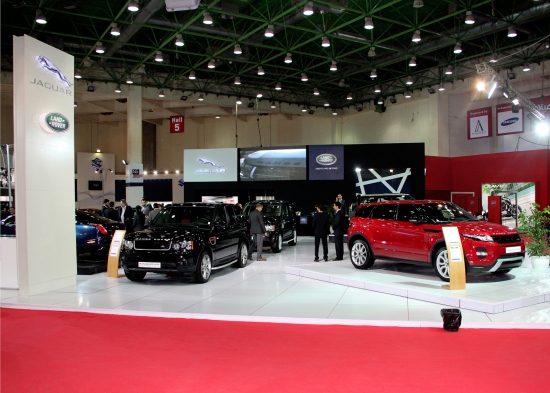The British car manufacturing industry has followed on from a strong year in 2012, with continued investments leading to a higher demand from international markets than has been seen for quite some time. Now Jaguar Land Rover has announced further expansion of its Castle Bromwich, Birmingham operations after posting record-breaking annual pre-tax profits of £1.67 billion.

Total international sales at Jaguar Land Rover increased by 22 per cent to just under 375,000 vehicles in the twelve months to March 31st. This was greatly helped by the launch of both the Jaguar XF Sportbrake and Range Rover’s brand new model, both of which proved very popular with critics and motorists alike.
The acquisition of the 11 acre site in Castle Bromwich will allow the manufacturer to further increase output and keep up with consumer demand, which is only expected to rise given the number of new models Land Rover intends to launch over the next three years. Unfortunately, though, the deal could pose problems for the current tenants of the site, Dunlop Motorsport Tyre Company.
According to communications director for Dunlop, James Bailey, the tyre giant has contingency plans in place should it have to vacate its current premises when its lease runs out in 2014.
However, while this means customers will still receive their orders thanks to Dunlop’s various international sites, it remains open to question whether or not Birmingham based operations will continue – thus placing 180 jobs at risk.
Mr Bailey pledged to keep workers informed regarding new developments as the story progresses.
He said; “At the moment we really need to understand the impact of this announcement.
“Looking after our employees is our priority. We will keep them informed as it becomes clearer.
“We have got a robust contingency plan because first of all we have got a commitment to the motorsport business. One of our main focuses at the moment is how we continue to supply all of our key customers.”
Of course, with the huge expansion planned for Jaguar Land Rover’s operations, it is highly likely that any jobs lost at Dunlop will be made up for in the coming years, as well as a number of temporary construction roles being created during the development process. However, as Dunlop has been a feature of the Birmingham manufacturing industry for just under 125 years, the city’s Chamber of Commerce is keen to ensure a solution which works for both firms can be found.
Director of policy at Birmingham Chamber of Commerce Group, Katie Teasdale, says; “We hope a solution can be found to keep these jobs in the city. We need to have a broad mix of companies in our economy.
“Jaguar Land Rover is a huge success which is an asset for the Midlands, but it is important that we do everything we can to keep Dunlop Motorsport here and safeguard these jobs.”
Do you think Dunlop will remain in Birmingham or will Jaguar’s expansion signal the end of the company’s association with the city?
Previous Post
Canadian Company joins Crown Estate in West End Venture